Education
We support the care workforce, including community workers, educators, health professionals and peer workers, through body-based, trauma-informed education, support, and training.
Join our 2026 training waitlist
*
Join our 2026 training waitlist *
Train and learn with us
Our education work centres nervous system literacy, movement and mindfulness tools, and relational approaches that translate into frontline care. We currently deliver four capacity-building programs. We also offer tailored team training and professional development for organisations and services.
Trauma-Informed Practitioner Training
A 20-hour professional training program. Train in our body-based approach to creating safe, trauma-informed spaces.
Applied Somatics Practitioner Training
A 20-hour professional training program. Learn somatic practices and techniques that you can integrate into your work with people and communities.
Foundational Somatics Program
A 6-week introductory program to core somatic skills, tools and resources for wellbeing. This program is for personal development, not formal training.
Embodied Care: Free Sessions
Free somatic classes for carers, frontline workers and allied health professionals. Delivered online and in-person. Registration is required.

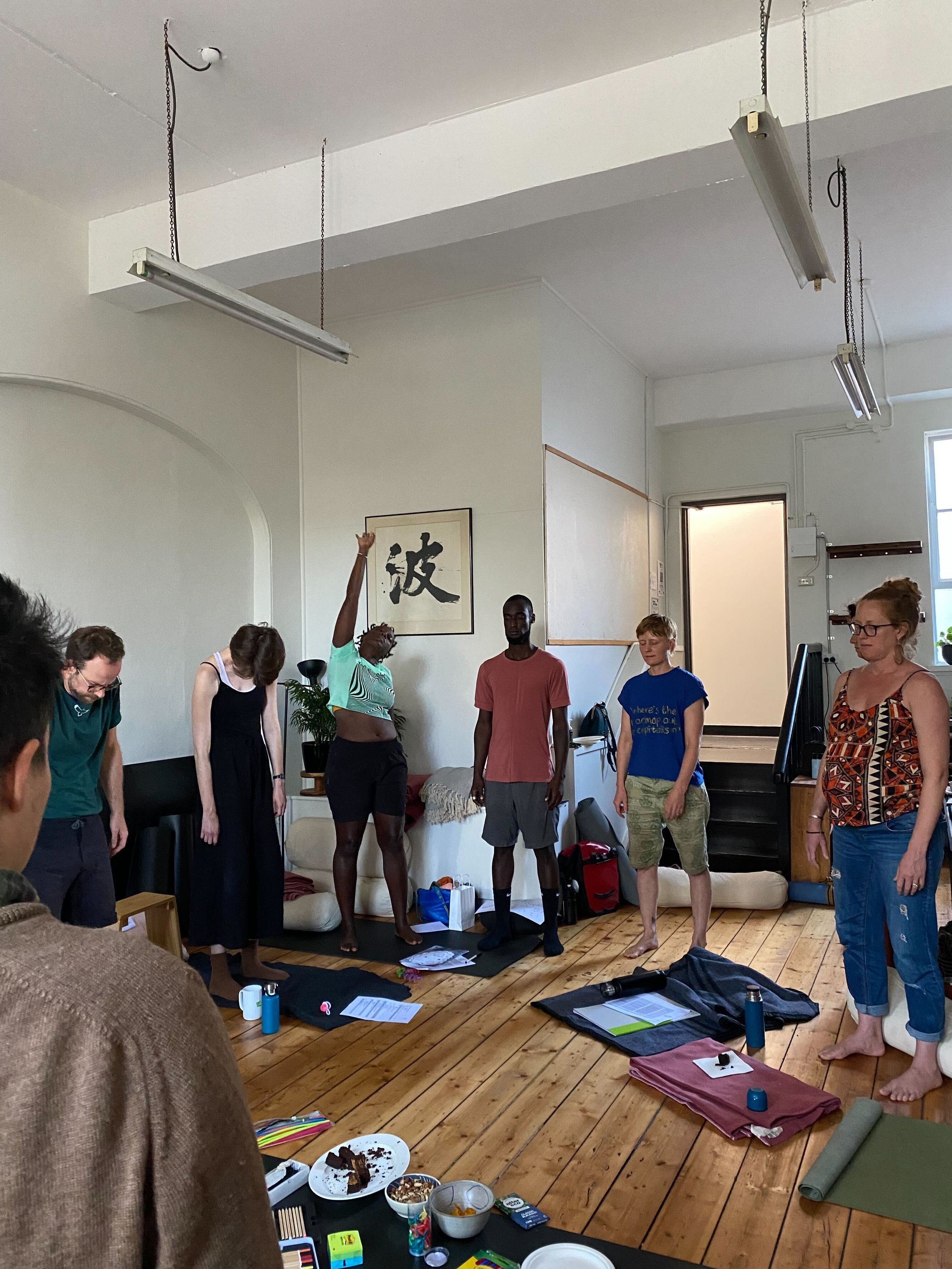
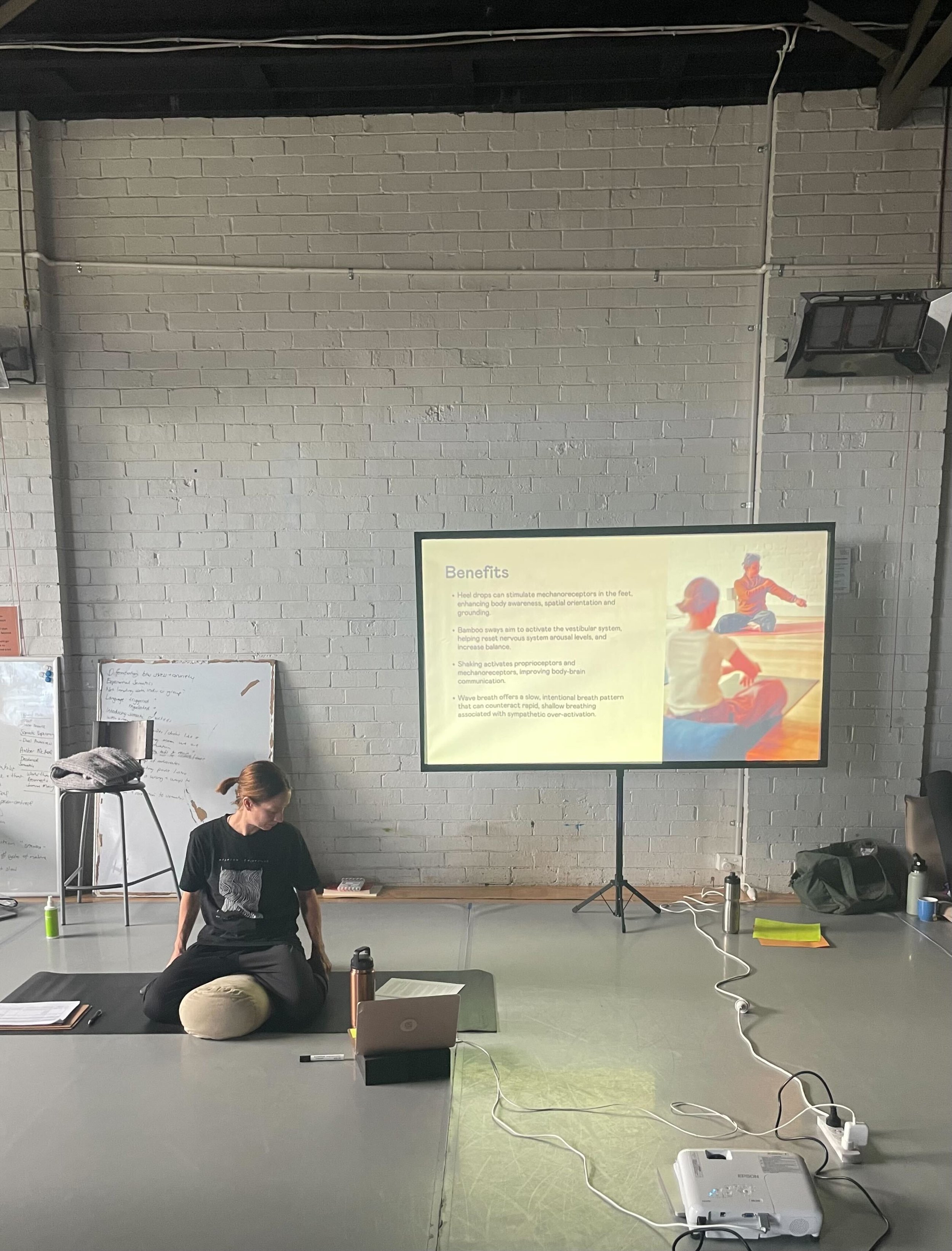
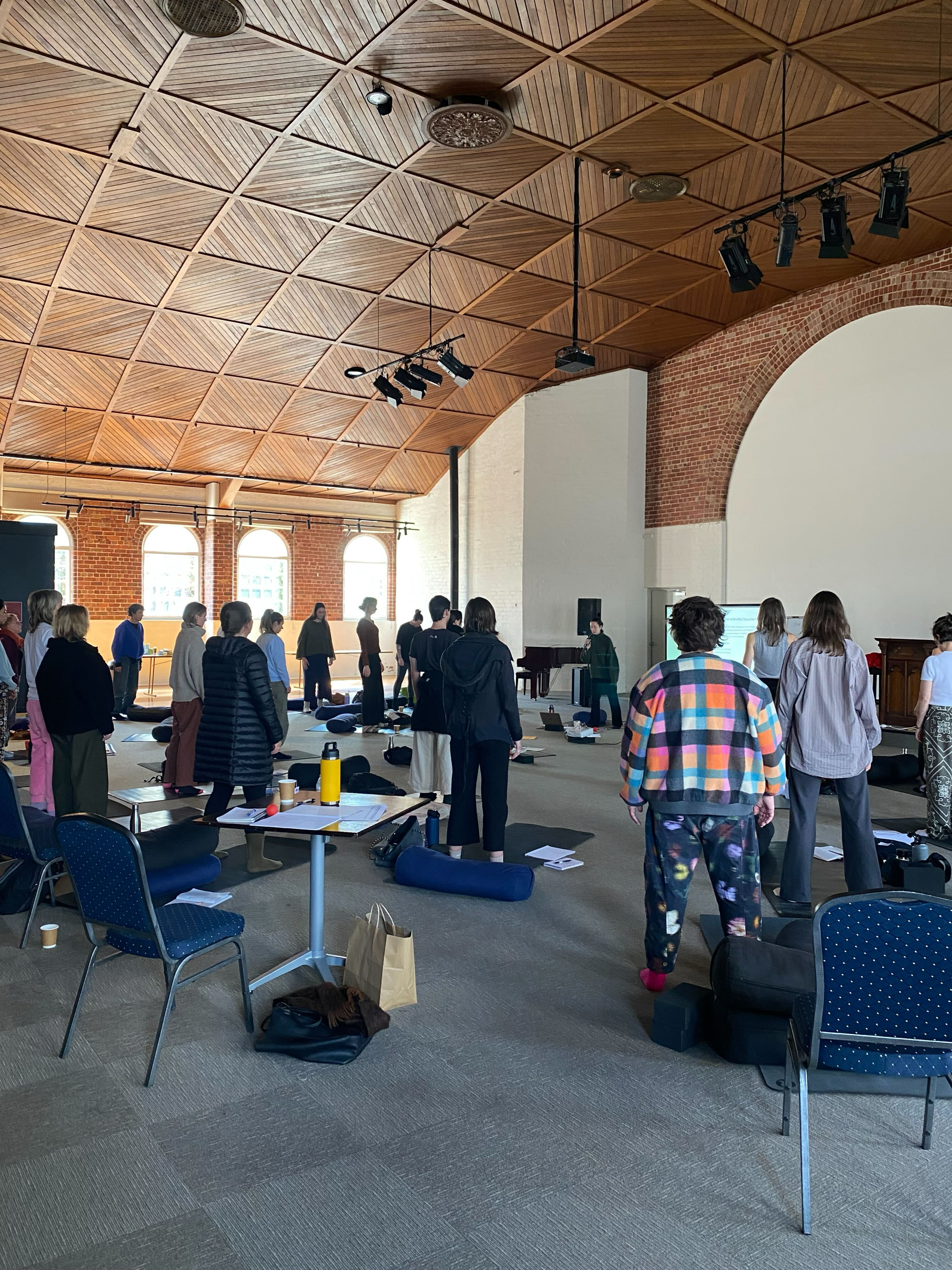
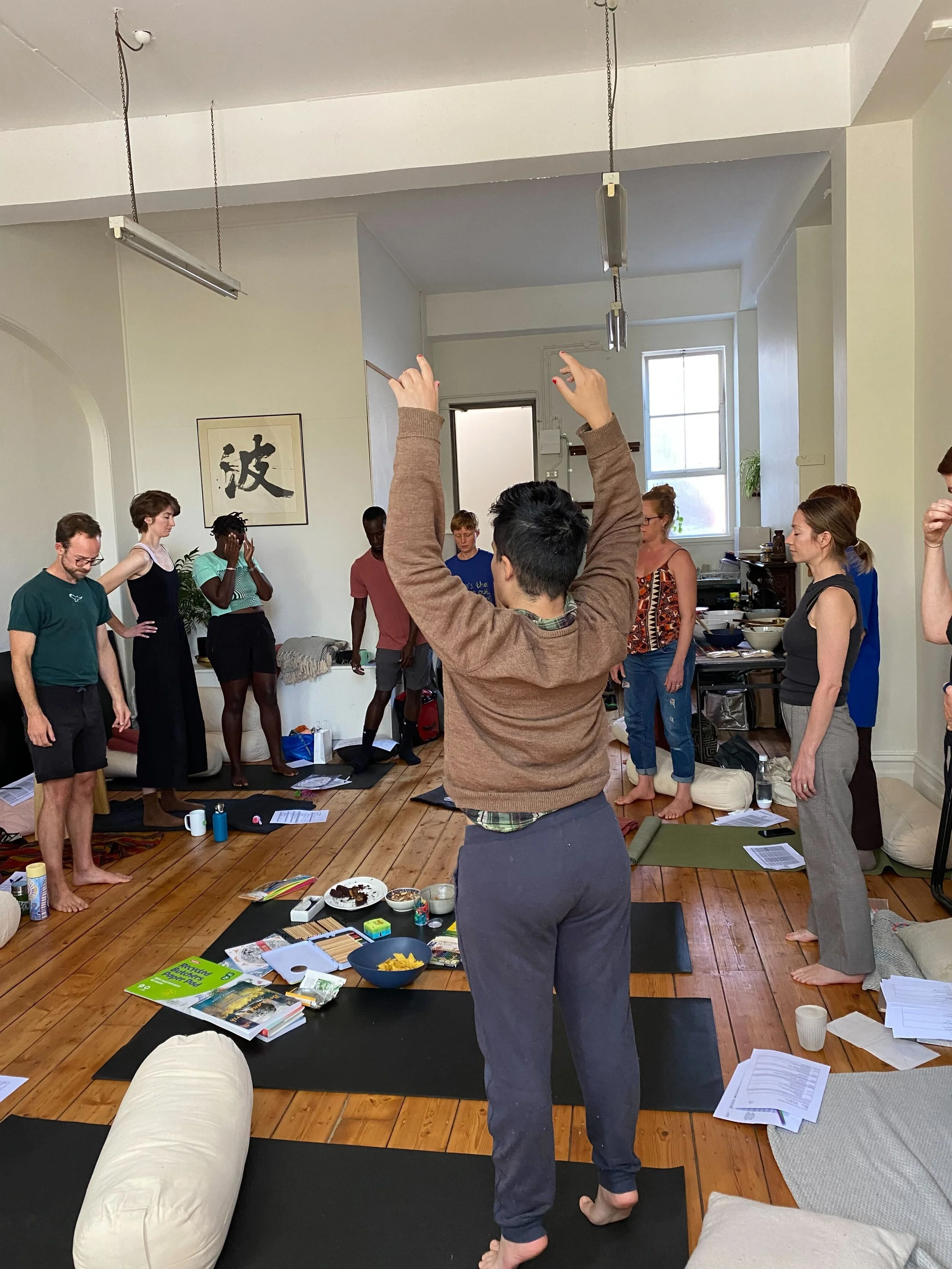
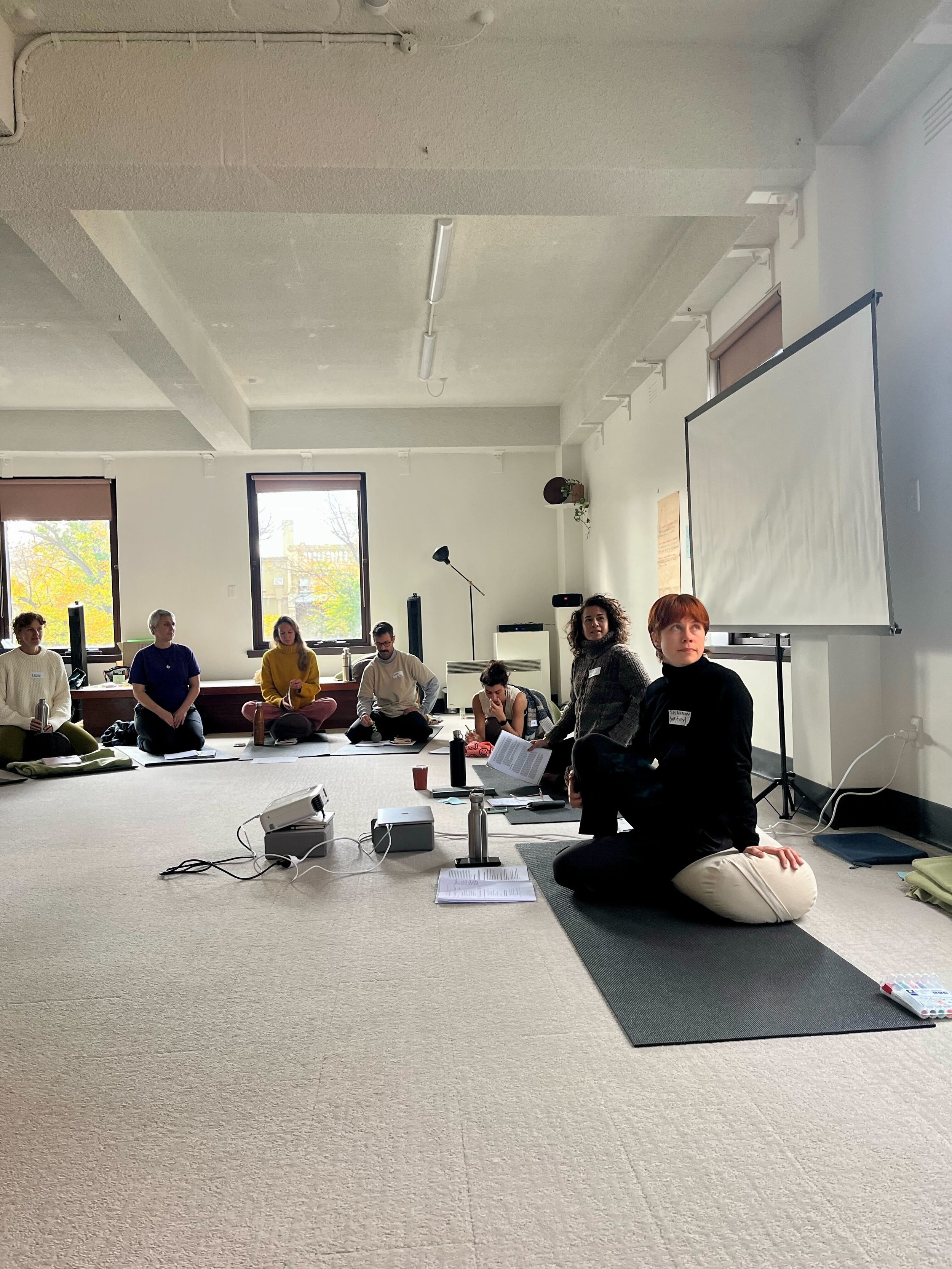
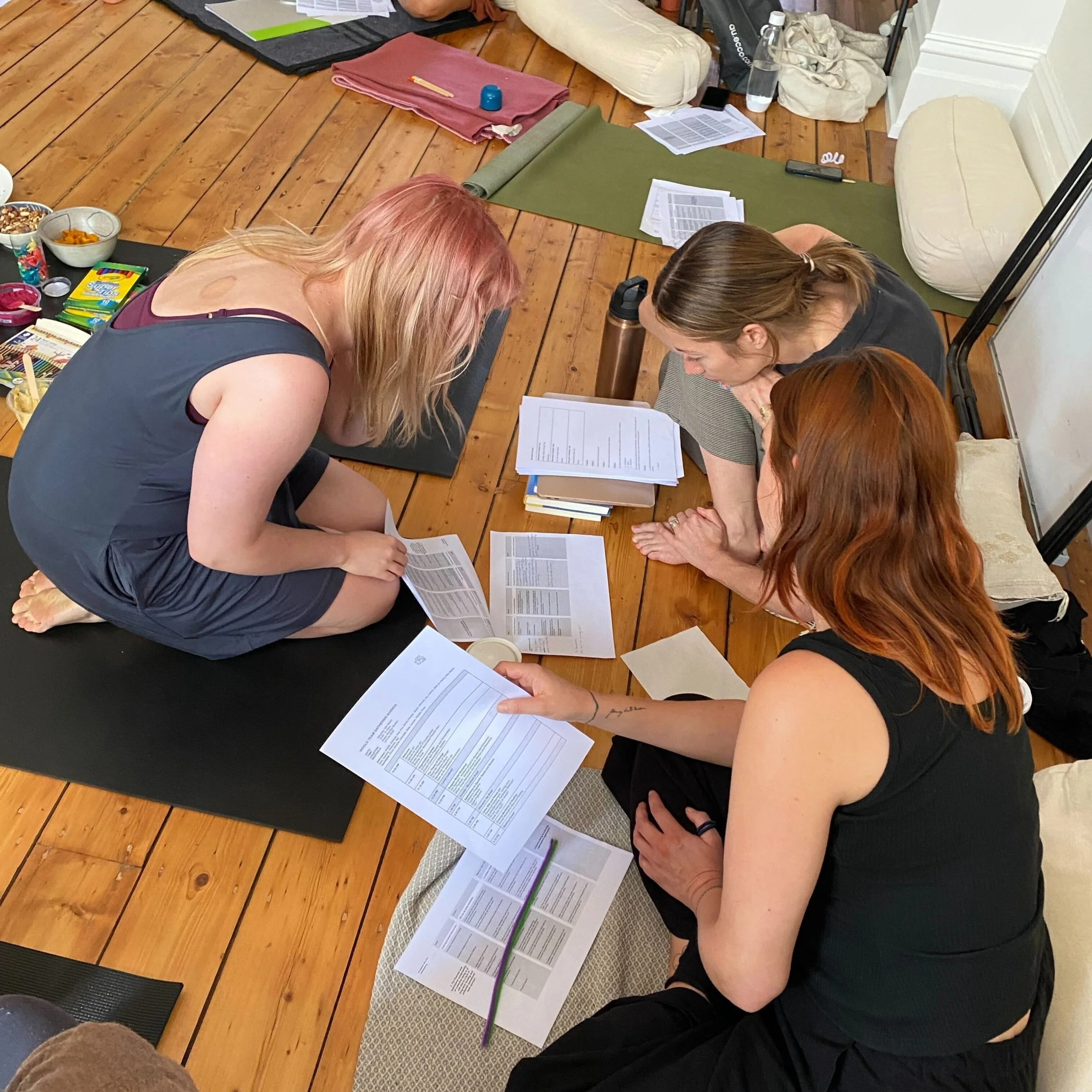
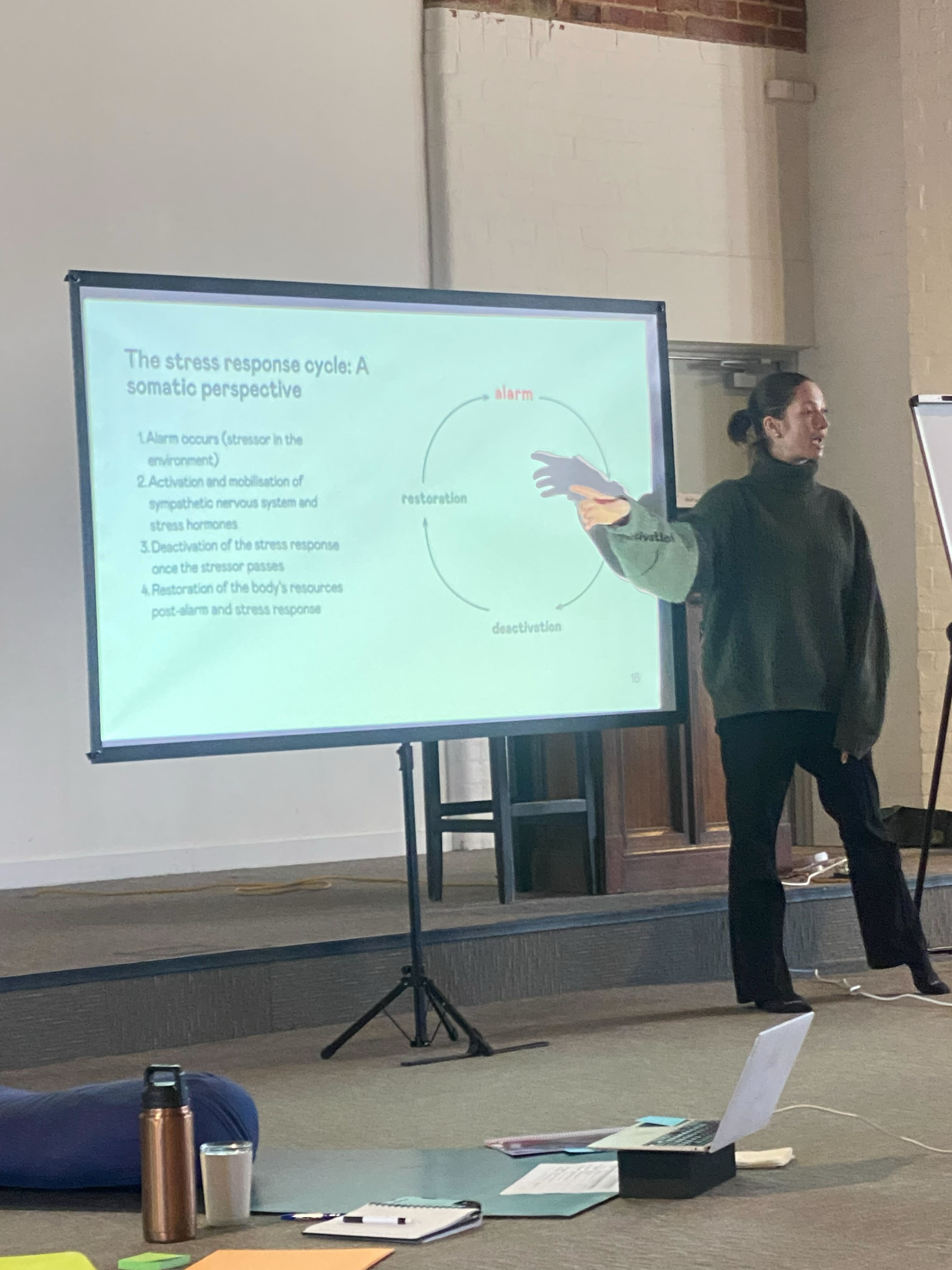
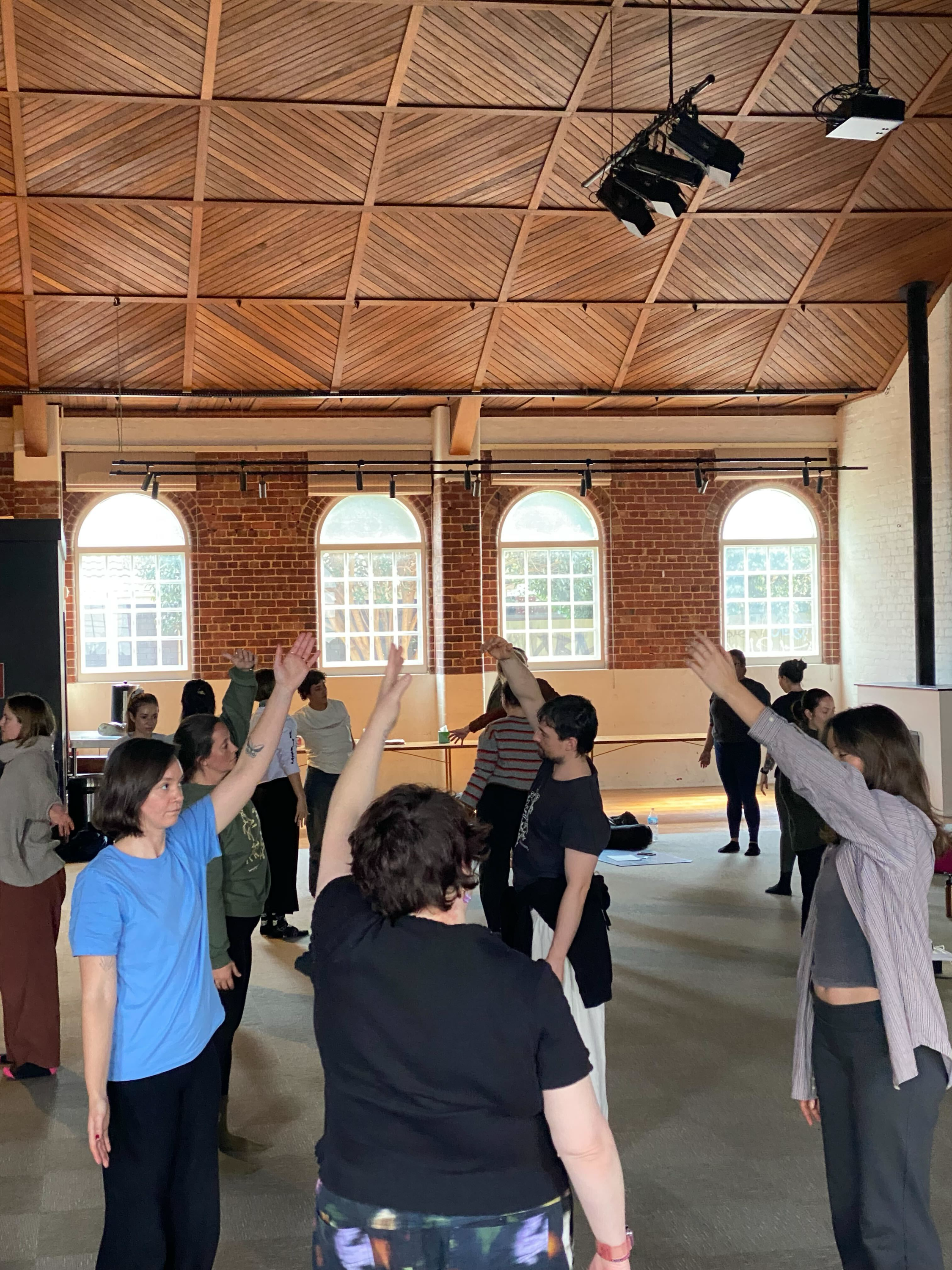
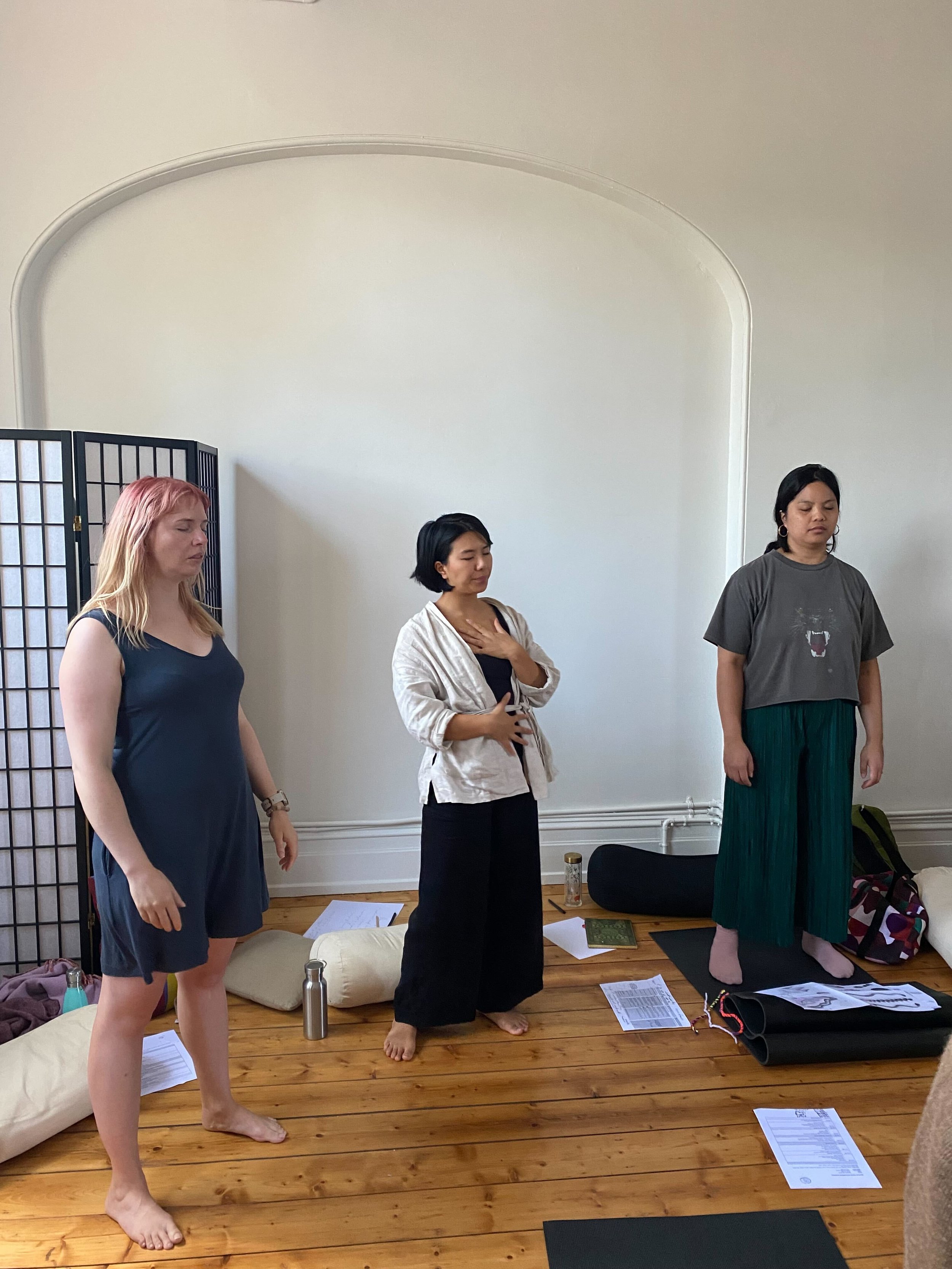
“I loved this training. The facilitators were so well informed, practiced, and experienced. They displayed a deep whole body knowing of this work and it supported confidence in applying somatic to my own work in the world. The support and resources were generous.”
Applied Somatics Practitioner Training participant, 2025
Education FAQs
-
Yes, we do. Typically, the training fee is divided into 3 payments received before the first training date. However we can offer more regular payments if that is more supportive for you. Connect with our Programs Coordinator, Alexia, at alexia@collectivebeing.org to request a payment plan for an upcoming training.
-
Subsidised places (and payment plans) are available for those experiencing financial duress. All Collective Being programs are free for First Nations people and communities. Connect with our Programs Coordinator, Alexia, at alexia@collectivebeing.org for more information.
-
The new Victims of Crime Financial Assessment Scheme (or FAS - formerly known as VOCAT) is now accepting applications. Historically, recipients of VOCAT funding have been able to access our programs through the scheme.
If you would like to include a Collective Being program in your FAS application, please email our Programs Coordinator, Alexia, at alexia@collectivebeing.org.
-
Yes, depending on your plan. Please connect with our Programs Coordinator, Alexia, at alexia@collectivebeing.org, or have a chat with your case manager or allied health support worker to confirm.
-
For individuals with disabilities who may not be eligible for the NDIS, the Victorian Department of Families, Fairness and Housing (DFFH) offers support packages to help meet various needs, including the Disability Support Package (DSP).
Depending on your package, you may be able to access our programs through the DSP. Reach out to our Programs Coordinator, Alexia, at alexia@collectivebeing.org.
-
Following participation in all aspects of the training, you will receive a Certificate of Completion.
-
We’d love to hear from you. Get in touch to discuss bringing our programs to your community.
-
Please get in touch using our enquiry form.
Ready to join a training or program?
Train in our approach
Trainings for facilitators, teachers and practitioners seeking to increase safety, accessibility and belonging in therapeutic, educational, and caregiving settings.
Join a program
Open to all with no prerequisite knowledge, our Foundational Somatics Program is the perfect introduction to a body-based approach to mental health, resilience, and wellbeing.
Bespoke offerings
In addition to our core educational trainings and programs, we have a suite of workshops that can be delivered online or in- person.
